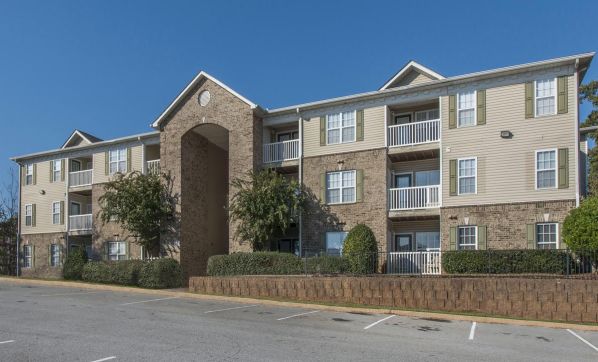
ATLANTA—How is technology impacting the multifamily market? It depends, in part, on what market we're looking at and how prevalent is the use of technology in any given market.
Indeed, some multifamily operators are excelling in the use of technology while others are lagging behind. What's more, there are many spins on how technology can and is being used in the multifamily industry.
GlobeSt.com caught up with Blake Okland, vice chairman and head of the US Multifamily practice at ARA, to get a few thought and perspectives. He offered five key points: advanced algorithms; smarter buildings; tech retrofits; the disintermediation myth; tech hubs; and industry disruptors. We'll look at each of his points in this series of exclusive interviews.
“Commercial real estate continues to take advantage of new technological advances to meet the needs of buyers, sellers and brokers,” Okland tells GlobeSt.com. “One of them is advanced algorithms, which are becoming more commonplace in order to deliver personalized recommendations to investors looking to invest in multifamily buildings.”
(Atlanta is advancing rapidly in the technology market.)
Real estate tech is focused on allowing more control and transparency in transactions for buyers, sellers and brokers. These algorithms build profiles of a person's investment interests, and make recommendations based on specific interests to allow brokers transparency into the process.
“Traditionally, industry insiders were the only players with access to crucial data that could help a buyer or seller set their market,” Okland says. “But new technology helps place this information in the hands investors by streamlining the transactions process and creating more transparency.”
With the evolution of technology, especially real estate data vendors essentially becoming full-fledged technology companies, the amount of information available is extraordinary. Okland points to the maturation of rental websites like Apartments.com, Street Easy, Zillow and other platforms that matches the growing institutional investment in the commercial real estate food group.
(Technology is playing an ever-increasing role in commercial real estate. Get one guru's take.)
In the next installment of this series, we'll look at smart buildings, retrofits and the disintermediation myth. Stay tuned.

ATLANTA—How is technology impacting the multifamily market? It depends, in part, on what market we're looking at and how prevalent is the use of technology in any given market.
Indeed, some multifamily operators are excelling in the use of technology while others are lagging behind. What's more, there are many spins on how technology can and is being used in the multifamily industry.
GlobeSt.com caught up with Blake Okland, vice chairman and head of the US Multifamily practice at ARA, to get a few thought and perspectives. He offered five key points: advanced algorithms; smarter buildings; tech retrofits; the disintermediation myth; tech hubs; and industry disruptors. We'll look at each of his points in this series of exclusive interviews.
“Commercial real estate continues to take advantage of new technological advances to meet the needs of buyers, sellers and brokers,” Okland tells GlobeSt.com. “One of them is advanced algorithms, which are becoming more commonplace in order to deliver personalized recommendations to investors looking to invest in multifamily buildings.”
(Atlanta is advancing rapidly in the technology market.)
Real estate tech is focused on allowing more control and transparency in transactions for buyers, sellers and brokers. These algorithms build profiles of a person's investment interests, and make recommendations based on specific interests to allow brokers transparency into the process.
“Traditionally, industry insiders were the only players with access to crucial data that could help a buyer or seller set their market,” Okland says. “But new technology helps place this information in the hands investors by streamlining the transactions process and creating more transparency.”
With the evolution of technology, especially real estate data vendors essentially becoming full-fledged technology companies, the amount of information available is extraordinary. Okland points to the maturation of rental websites like Apartments.com, Street Easy, Zillow and other platforms that matches the growing institutional investment in the commercial real estate food group.
(Technology is playing an ever-increasing role in commercial real estate. Get one guru's take.)
In the next installment of this series, we'll look at smart buildings, retrofits and the disintermediation myth. Stay tuned.
Want to continue reading?
Become a Free ALM Digital Reader.
Once you are an ALM Digital Member, you’ll receive:
- Breaking commercial real estate news and analysis, on-site and via our newsletters and custom alerts
- Educational webcasts, white papers, and ebooks from industry thought leaders
- Critical coverage of the property casualty insurance and financial advisory markets on our other ALM sites, PropertyCasualty360 and ThinkAdvisor
Already have an account? Sign In Now
*May exclude premium content© 2025 ALM Global, LLC, All Rights Reserved. Request academic re-use from www.copyright.com. All other uses, submit a request to [email protected]. For more information visit Asset & Logo Licensing.








